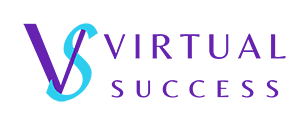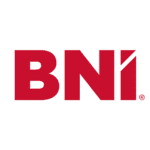 We frequently speak about productivity in business circles. Yet, what “productivity” means is often misunderstood.
We frequently speak about productivity in business circles. Yet, what “productivity” means is often misunderstood.
 Productivity is most often thought of in terms of goals that can be measured or calculated. But it’s not just about working at top speed, which can lead to stress or burnout. These kinds of misconceptions only negate the benefits of trying to increase productivity. We try to cram more tasks into our day or work through our lunch break.
Productivity is most often thought of in terms of goals that can be measured or calculated. But it’s not just about working at top speed, which can lead to stress or burnout. These kinds of misconceptions only negate the benefits of trying to increase productivity. We try to cram more tasks into our day or work through our lunch break.
While it is about achieving more with less, productivity is more about prioritizing tasks to accomplish them most efficiently. Taking regular breaks helps us to maintain mental sharpness. Productivity can help us not only with business but also with personal growth and a balanced lifestyle. Excelling in your job performance could result in promotions, increased recognition, and future growth opportunities. With our work completed efficiently, we can now spend our remaining time doing things we enjoy – time with family and friends, hobbies, or just sitting back and relaxing in our time off.
For entrepreneurs or business owners, careful consideration of factors related to productivity can lead to cost efficiencies, improved levels of service and increased capacity. These can, in turn, give us a competitive advantage and even scalability to grow our businesses.
Overcoming Barriers to Productivity
Often, the most significant barrier to productivity is procrastination. I’m sure all of us have, at times, struggled with last-minute rushes to meet deadlines. Mustering up the motivation and self-discipline to complete projects needs to be done, but organizing and streamlining tasks and projects is essential.  Time management strategies like breaking them down into smaller steps with realistic due dates will help you manage overlapping demands on your time more effectively.
Time management strategies like breaking them down into smaller steps with realistic due dates will help you manage overlapping demands on your time more effectively.
Another danger is the risk of becoming distracted online. Email and social media notifications, office chatter, and phone calls vie for our attention. Set some boundaries and turn off unnecessary notifications when working on an urgent deadline.
Staying focused and motivated is difficult if there is a lack of clear goals. Setting SMART goals (those that are specific, measurable, achievable, relevant, and time-bound) can give you the clarity to move forward confidently.
Using Technology to Become More Productive
While the number of tools to help business owners has blossomed in recent years, be careful in choosing which to use to help organize and streamline your work. The goal is for these to help you be more productive, not less productive.
A project management tool is essential, especially if multiple people are involved in different aspects of the same project and give you the ability to pull reports for billing and other purposes. Time tracking apps, sometimes included in project management apps but also available as stand-alone apps, can help you track how much time is spent on tasks. Social Media tools allow you to schedule future posts efficiently over different platforms.
Be careful when selecting these tools and remember that your goal is to be more productive with your work time.
It All Comes Down to Us
We, as business owners, are ultimately responsible for our productivity. A high degree of personal accountability is needed to stick with your goals for your business’s success. This often poses a problem when we haven’t met our productivity goals. We must acknowledge these failures, move past them, and learn from our mistakes. We can then make adjustments that will allow us to reach our goals.
Unclear expectations are commonly caused by ineffective communication about what results are expected and who will be accountable for different aspects of a project. Break down all the steps and be clear about the desired outcomes for each step.
If the project or task isn’t tied to measurable metrics, it may be challenging to determine when the job is done. Choosing a measure of how you evaluate whether the goal is met and a timeframe for when the goal must be accomplished is crucial to assuring productivity.
 Allocating sufficient budget or resources is necessary and should be part of the planning stages for any project, whether it is a stand-alone project or an ongoing business process. Are funds required for travel? Does the staff have sufficient hours to complete the work, or will you need to outsource it? This should all be determined before committing to the project.
Allocating sufficient budget or resources is necessary and should be part of the planning stages for any project, whether it is a stand-alone project or an ongoing business process. Are funds required for travel? Does the staff have sufficient hours to complete the work, or will you need to outsource it? This should all be determined before committing to the project.
Problems can arise when the level of autonomy is not clearly defined. What decisions can be made by those working on the project? Which decisions require executive approval? These boundaries should be set up front before project work is started.
When we take responsibility for the results of our efforts and work to define expectations, metrics, resources and boundaries, we can become more efficient and productive in our workplace.




